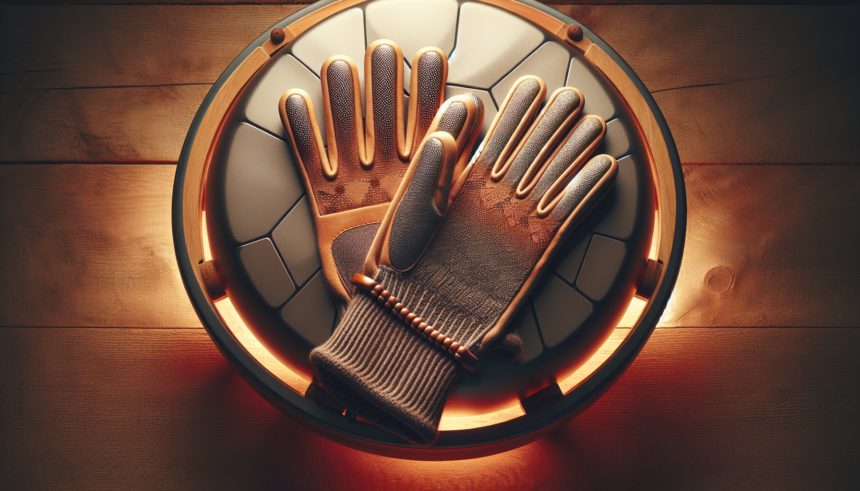The handpan, with its captivating and enchanting sound, has gained immense popularity among music enthusiasts. Handpans are not only musical instruments but pieces of art designed to produce spiritual and meditative tones. As with any musical instrument, taking care of a handpan is crucial to ensure its longevity and pristine sound quality. One essential accessory that every handpan player should consider is handpan gloves. These gloves offer several benefits, not only to the player but also to the instrument itself.
Protecting Your Handpan
One of the primary reasons for using handpan gloves is to protect the instrument from dirt, oils, and perspiration. Handpans are typically made from steel or various alloys that can be sensitive to moisture and oils from human hands. When playing the handpan, natural oils, sweat, and dirt can transfer to the surface, potentially affecting the finish and causing corrosion over time. Handpan gloves act as a barrier, keeping the instrument clean and preserving its longevity.
Furthermore, handpan gloves can protect the instrument from scratches and minor impacts. While playing, it is possible to accidentally hit the surface harder than intended. With gloves providing an additional layer of padding, there is less chance of causing any unintentional damage to the handpan.
Improving Grip and Control
Handpan gloves offer enhanced grip and control, enabling players to perform with greater precision. The gloves are typically designed with materials that provide a non-slip surface, ensuring that fingers do not slide off the handpan during performance. This improved grip can lead to better control over dynamics and articulation, allowing for a more expressive and nuanced playing experience.
This becomes especially important during fast-paced or complex musical sections where finger accuracy is paramount. With gloves, players can confidently move across the instrument, executing intricate patterns and sequences without the fear of missing notes due to slipping fingers.
Enhanced Comfort During Long Practice Sessions
Playing the handpan for extended periods can sometimes lead to discomfort or strain in the hands and fingers, particularly for beginners who have not yet developed the necessary muscle endurance. Handpan gloves provide an added layer of cushioning, reducing the strain and allowing players to practice for longer periods without experiencing discomfort or fatigue.
Additionally, for those who play outdoors or in varying temperatures, handpan gloves can offer thermal protection. They can keep hands warm in colder environments and can prevent excessive sweating in hotter conditions, ensuring a more comfortable playing experience overall.
Exploring Different Textures and Sounds
Wearing handpan gloves can also open up new possibilities for sound exploration. Different gloves are made from various materials, each with unique textures. By experimenting with gloves of different materials, players can discover new textures and timbres, adding a fresh dimension to their playing.
This experimentation can lead to the development of unique playing techniques and creative expression. Whether it’s a pair of gloves that slightly dampen the sound for a softer tone or gloves that provide a crisp attack, the possibilities are endless. This aspect of using handpan gloves can be particularly appealing for innovative and experimental musicians looking to broaden their sonic palette.
Aesthetic Appeal
For some players, the aesthetic appeal of handpan gloves is also a significant factor. Handpan gloves often come in a variety of colors and designs, allowing players to choose a pair that matches their personal style or stage outfit. This can add an extra layer of visual flair to performances, making them more engaging for the audience.
The combination of musical and visual elements can enhance the overall performance experience, creating a more immersive and captivating show. For performers who regularly play in front of an audience, the right pair of gloves can be an important part of their stage persona.
Conclusion
In summary, handpan gloves are an invaluable accessory for any handpan player. They offer protection for the instrument, improve grip and control, enhance comfort during long practice sessions, facilitate sound exploration, and contribute to the performer’s aesthetic appeal. Whether you are a beginner or an experienced player, investing in a good pair of handpan gloves can significantly enhance your playing experience and ensure that your handpan remains in excellent condition for years to come. Embrace the benefits of handpan gloves and elevate your musical journey to new heights.
Frequently Asked Questions (FAQs)
Q1: Are handpan gloves necessary for all players?
A1: While not absolutely necessary, handpan gloves offer several benefits, including protecting the instrument, improving grip and control, and enhancing comfort. They are especially useful for players who often perform or practice for extended periods.
Q2: Can I use regular gloves instead of handpan-specific gloves?
A2: Handpan-specific gloves are designed with the needs of handpan players in mind, providing the necessary grip, comfort, and protection. Regular gloves may not offer the same advantages and could potentially affect your playing technique.
Q3: Will wearing gloves affect the sound of my handpan?
A3: Wearing gloves can impact the sound slightly, depending on the material of the gloves. However, this can be used creatively to explore different textures and timbres, adding a new dimension to your playing.
Q4: How do I choose the right handpan gloves?
A4: Consider the material, fit, comfort, and grip of the gloves. It’s important to choose a pair that fits well and feels comfortable during play. You may also want to experiment with different types to see which works best for you.
Q5: How should I care for my handpan gloves?
A5: Follow the manufacturer’s care instructions, which typically include hand washing or gentle machine washing. Avoid exposing them to excessive heat or harsh chemicals, and allow them to dry thoroughly before using them again.





